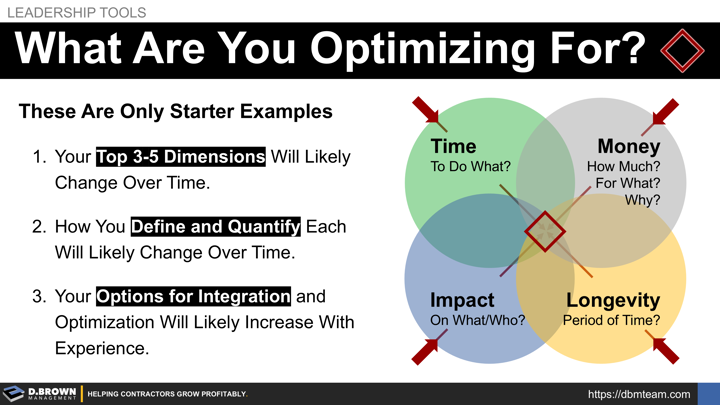The more clarity you have around what you are optimizing for, the more likely you are to achieve that optimization.
- What are your top 3-5 dimensions of your life including your career and business that you are optimizing for? As an example, time, money, impact, and longevity might be four things that you need to integrate together.
- How do you define and quantify each? Start with the why and what aspects. If you want more flexible time, for example, what are the things you want to do with that time? Get very specific and don't ignore the seemingly insignificant details like having coffee with family and friends every morning. Get to some quantification starting with ranges. For example, with money, is $20K per year enough? Probably not. Do you need $1B? Probably not. Get clarity on your minimum, maximum, and target range.
- How do they integrate? In the examples provided, time and money are interconnected. Typically, time is traded for money up to a certain point, after which money can serve as a significant multiplier of time, depending on how it is used.
These will most likely change for yourself and those around you over time.
- Your top 3-5 dimensions will likely change over time.
- How you define and quantify each will likely change over time.
- The options you have for integration and optimization will likely increase with experience.
There are no right or wrong answers to these questions. The continuous questioning, experimentation, and refinement is what ultimately helps you define your perfect life and retirement masterpiece.
We work on all aspects of a construction business, and at the same time, work hard to help you refine your vision and keep pressure on the optimization that defines success for you. Without that, all other victories are hollow.

